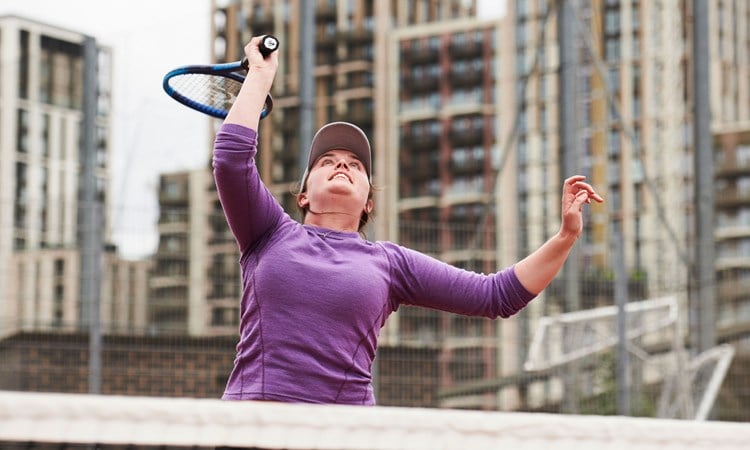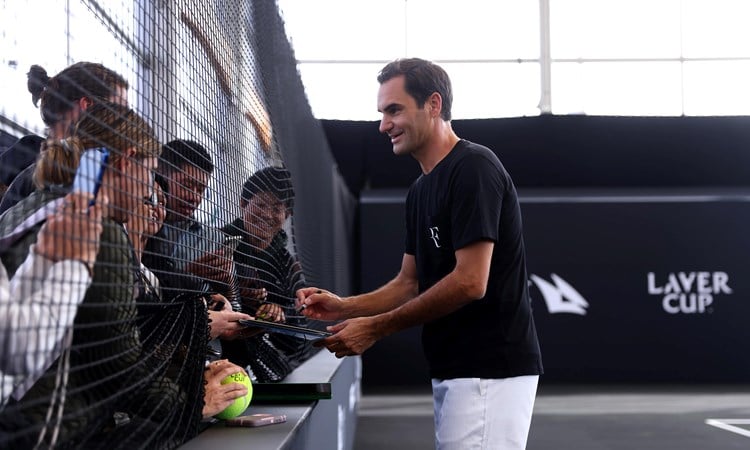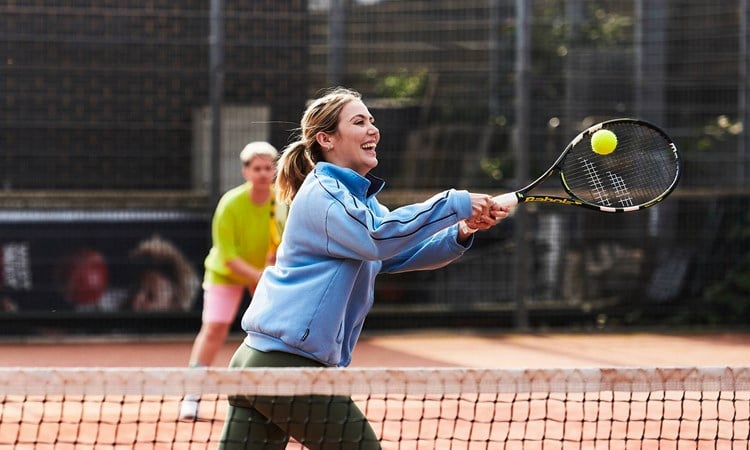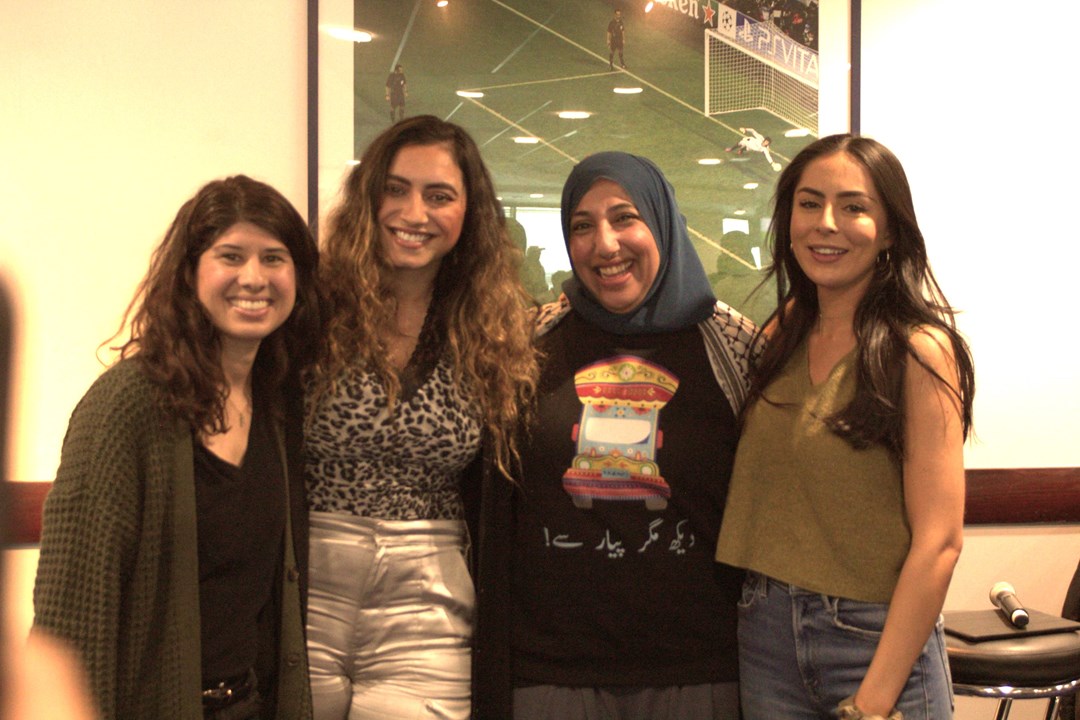
LTA announces new collaboration with Brown Girls Sport
• 5 minute read
To celebrate South Asian Heritage Month, we are excited to announce a collaboration with Brown Girl Sport, a media platform that promotes South Asian stories in sports with the aim of increasing representation and visibility.
Brown Girl Sport was founded by Sky Sports reporter Miriam Walker-Khan in January 2023 as an online platform and community with the aim of representing South Asian women and girls in sport; through storytelling and providing a voice in order to smash stereotypes that Brown women don’t do, care or know about sport.
The platform has a strong focus on football but also covers a wide variety of other sports such as cricket, athletics, boxing, archery, weightlifting, hockey and F1. The aim of the collaboration now is to create both a physical and online community for tennis fans.
Miriam says: “We’re so excited about launching a tennis community. We already know there are lots of people who follow Brown Girl Sport who are huge fans of the sport and we can’t wait to connect them and do what we’ve done in football, which is to create a physical community as well as an online one.
“Whether it’s connecting fans who can go to tournaments together and watch or beginners who can go to their first ever tennis session together, we want to make sure people feel that this is a space for them, which they can feel at home in.
"Storytelling is a huge part of that, but so is organising and allyship. We want people to be able to connect with new people over their love of tennis - because what is better than finding new sport friends who also understand what it’s like to be from a similar community or religion and can be there by your side every step of the way to make things feel a little less daunting.”
She added: “Stories of South Asians in tennis can come in all forms, but firstly, we want to highlight all the incredible Brown women and girls who play the sport or have been inspired by previous players with South Asian heritage.
"Equally, we want to inspire more people to pick up a racket for the first time and tell the stories of fans to explore what it’s really like for South Asians to watch, play, and experience tennis. We are hoping to use our network and the LTA’s network to find the stories that are out there with schools, youth groups, charities, and other groups. We want to connect with people who can tell their own stories, especially on social media.”
We want to make sure people feel that this is a space for them, which they can feel at home in.
“I really wanted to create a platform that would tell the stories of all the incredible South Asian women, girls, and non-binary people in sport.
"After working in the sports media since I was a student, I was always surprised at how often I heard people say there are no South Asian women in sport because I personally knew so many who had incredible stories, but weren’t deemed as mainstream or successful enough to be talked about.
“As a storyteller, it felt like there was this treasure trove of stories and people that I just wanted the world to see. And that’s where it all began!
"Since 2023, the platform has grown so much - it’s become something I am incredibly proud of because as well as telling stories, I think it’s also become a community, both online and in person at events. That still blows my mind after thinking where it came from and how it all began. I’m proud of the fact that we’ve genuinely become a voice for people who often didn’t think they’d have one.”
There exists the myth in sports media that there are not any South Asian women in sport. However, the reality is that there are many, but their stories are not always being told. Sam Kerr, who plays for Chelsea FC, has Indian heritage, and Saf Middleton-Patel represented Wales in the Euros this last month.
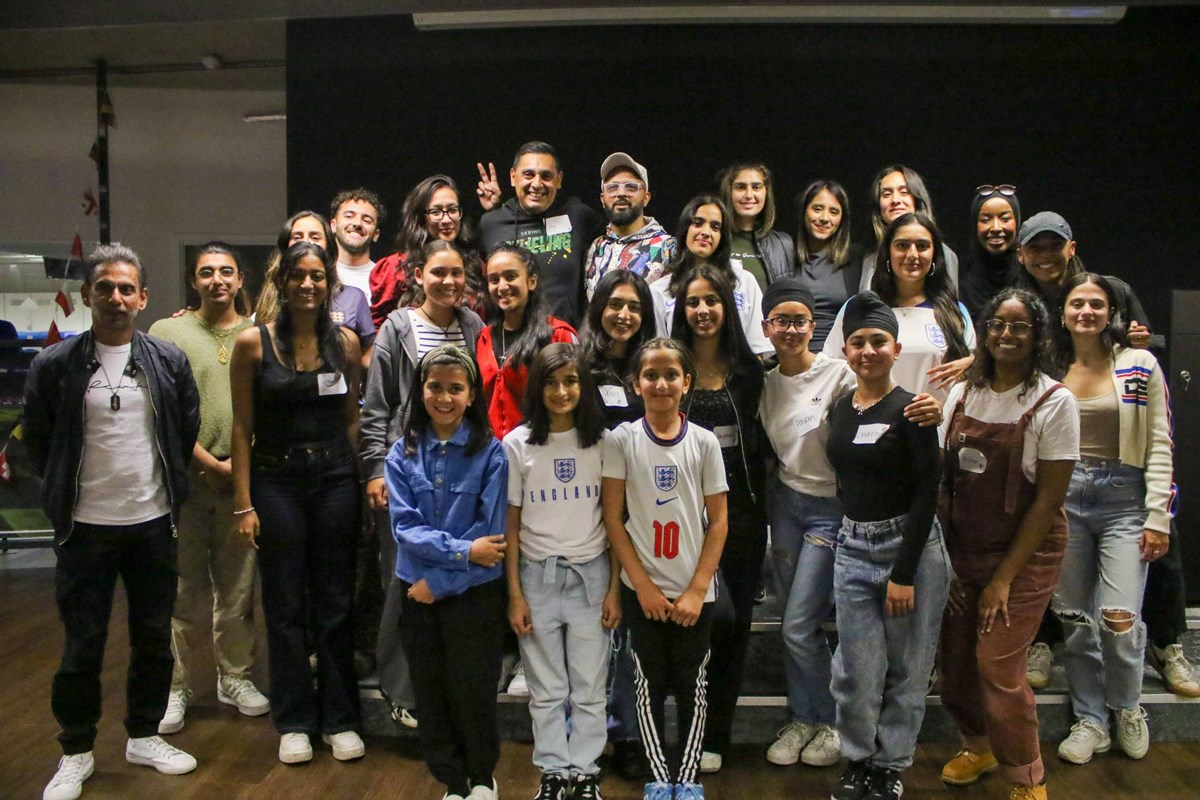
Miriam adds: “I think in the media we often forget how much of a responsibility we have, and we take it for granted. Being a South Asian woman in sports journalism is rare, and lots of people over the years have made me realise that I have a responsibility to represent us even in my industry. But to think of how many kids follow the account and see the incredible role models from backgrounds similar to them is absolutely the best thing about Brown Girl Sport.”
South Asian women face numerous challenges in the sports industry, but Miriam believes the biggest issue they face is to do with stereotypes and unconscious bias.
“These are stereotypes that are ridiculous, outdated and really harmful but ones that have been perpetuated in sport in this country for decades.
"Without the proper education to undo this kind of harm, coaches and scouts can still (often unknowingly) perpetuate them. I also think there is a general feeling that South Asian communities are to blame for our underrepresentation in sport, rather than people looking at bigger issues and the structural and systemic issues within each respective sport.”
Tennis may be new to BGS, but Miriam says they’ve always aimed to promote a balance of sports so that there’s something for everyone.
For example, with football, they have hosted watch parties for major matches that are open to people of all ages, genders, and races. There are also alcohol-free environments, ensuring that everyone feels safe and comfortable in the space.
Reshma Rao is one of the volunteers at Brown Girls Sport and works closely with Miriam.
To think of how many kids follow the account and see the incredible role models from backgrounds similar to them is absolutely the best thing about Brown Girl Sport.
“Both Miriam and I are South Asian women working in sports journalism, and it’s rare to see others who look like us, but we know that we have a responsibility to represent us even in our industry," she said.
"BGS is special because it features a range of stories that are not highlighted elsewhere in the media, and it allows young boys and girls of all ethnicities to learn about these stories and be inspired by these role models. It creates a space for people of all ages to talk about challenges they’ve faced, learn from others, and support South Asians in sports together.”
For Reshma personally, tennis was a huge part of her upbringing as her mother is a former professional player.
She represented India in the 1980’s and was an excellent junior, making it to the top 20 in the world and playing at Wimbledon and Roland Garros. However, she struggled with the lack of community as there were hardly any other players who looked like her that she could lean on. She was proud to represent her country, but she was constantly facing racism, sexism, and adversity.
Reshma added: “Her ability to overcome all of these obstacles at a young age in spaces that weren’t welcoming is so admirable.
"In my own experience of playing sports, I’ve found that having people to share it with makes you love playing even more. Especially in an individual sport like singles’ tennis, I do think that not having a genuine community was one of the reasons that led my mum to stop playing tennis.
"It makes me so proud to think that we are changing that for young girls now and forever.
“Tennis is yet to have a breakthrough moment for a South Asian singles’ female player. Sania Mirza is the biggest name in South Asian women’s tennis, and male players Leander Paes and Mahesh Bhupathi made history as an Indian doubles pair.
"My mum was eventually able to find a community among these players (which has continued until today), but the lack of South Asian voices back then made her feel isolated during her career. It is inevitable that a female South Asian tennis star will arise, but we need to continue creating opportunities and supporting the players at grassroots levels in order for this to happen.”
Reshma says becoming involved with BGS was one of the best decisions she’s made because it has really made her feel like she belong in sports.
“I have found like-minded people who share similar beliefs, and I love being able to see first-hand the meaningful impact it has on other people.
"I’m looking forward to seeing how this continues into the world of tennis because the truth is there: South Asian women exist in tennis!
"It is just a matter of shining a light on these stories because they deserve recognition and appreciation too. That’s what we are so excited to be doing with tennis now, and we can’t wait to see what this collaboration with the LTA has in store for the future.”
Tennis opened up
Learn more about our inclusion strategy and how we are opening up tennis to all ageas, abilities and backgrounds.


